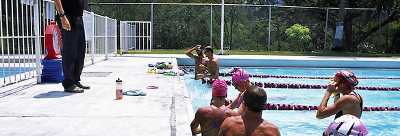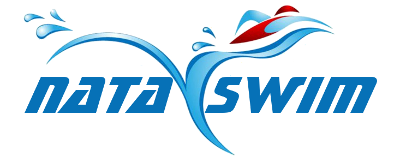Multilateral Physical Development
 Athletes need multilateral physical development as a training base as well as overall physical fitness. The purpose is to increase endurance and strength, develop speed, improve flexibility, and refine coordination, thus achieving a harmoniously developed body. We expect athletes with a strong base and a good overall development to improve athletic performance faster and better than those without this foundation. In addition, such athletes will have a superior body form, which increases their self-esteem and reflects a strong personality.
Athletes need multilateral physical development as a training base as well as overall physical fitness. The purpose is to increase endurance and strength, develop speed, improve flexibility, and refine coordination, thus achieving a harmoniously developed body. We expect athletes with a strong base and a good overall development to improve athletic performance faster and better than those without this foundation. In addition, such athletes will have a superior body form, which increases their self-esteem and reflects a strong personality.
Sport-Specific Physical Development
Sport-specific development improves absolute and relative strength, muscle mass and elasticity, specific strength (power or muscular endurance) according to the sport's requirements, movement and reaction time, and coordination and suppleness. This training creates the ability to perform all movements, especially those required by the sport, with ease and smoothness.
Technical Factors
Technical training involves developing the capacity to perform all technical actions correctly; perfecting the required technique based on a rational and economical performance, with the highest possible velocity, high amplitude, and a demonstration of force; performing specific techniques under normal and unusual circumstances (e.g., weather); improving the technique of related sports; and ensuring the ability to perform all movements correctly.
Tactical Factors
Tactical factors include improving strategy by studying the tactics of future opponents, expanding the optimal tactics within athletes' capabilities, perfecting and varying strategies, and developing a strategy into a model considering future opponents.
Psychological Aspects
Psychological preparation is also necessary to ensure enhanced physical performance. Psychological training improves discipline, perseverance, willpower, confidence, and courage.
Team Capability
In some sports (team sports, relays, rowing, cycling, etc.), team preparation is one of the coach's main objectives. The coach can accomplish this by establishing harmony in the team's physical, technical, and strategic preparation. The coach must establish such a concord for psychological preparation, meaning sound relationships, friendships, and common goals among teammates. Training competitions and social gatherings consolidate the team and enhance the feeling of belonging. The coach must encourage the team to act as a unit and should establish specific plans and roles for each athlete according to the needs of the team.
Health Factors
Strengthening each athlete's health is important. Proper health is maintained by periodic medical examinations, a proper correlation of training intensity with individual effort capacity, and alternating hard work with an appropriate regeneration phase. Following illness or injury, the athlete must begin training only when completely recovered, ensuring adequate progression.
Injury Prevention
Prevent injuries by following all safety precautions; increasing flexibility beyond the level required; strengthening muscles, tendons, and ligaments, especially during the initiation phase of a beginner; and developing muscle strength and elasticity to such a degree that when athletes perform unaccustomed movements accidents will be unlikely.
Theoretical Knowledge
Training increases athletes' knowledge of the physiological and psychological basis of training, planning, nutrition, and regeneration. Coaches should discuss athlete-coach, athlete-opponent, and teammate relationships to help athletes work together to reach the set goals.
